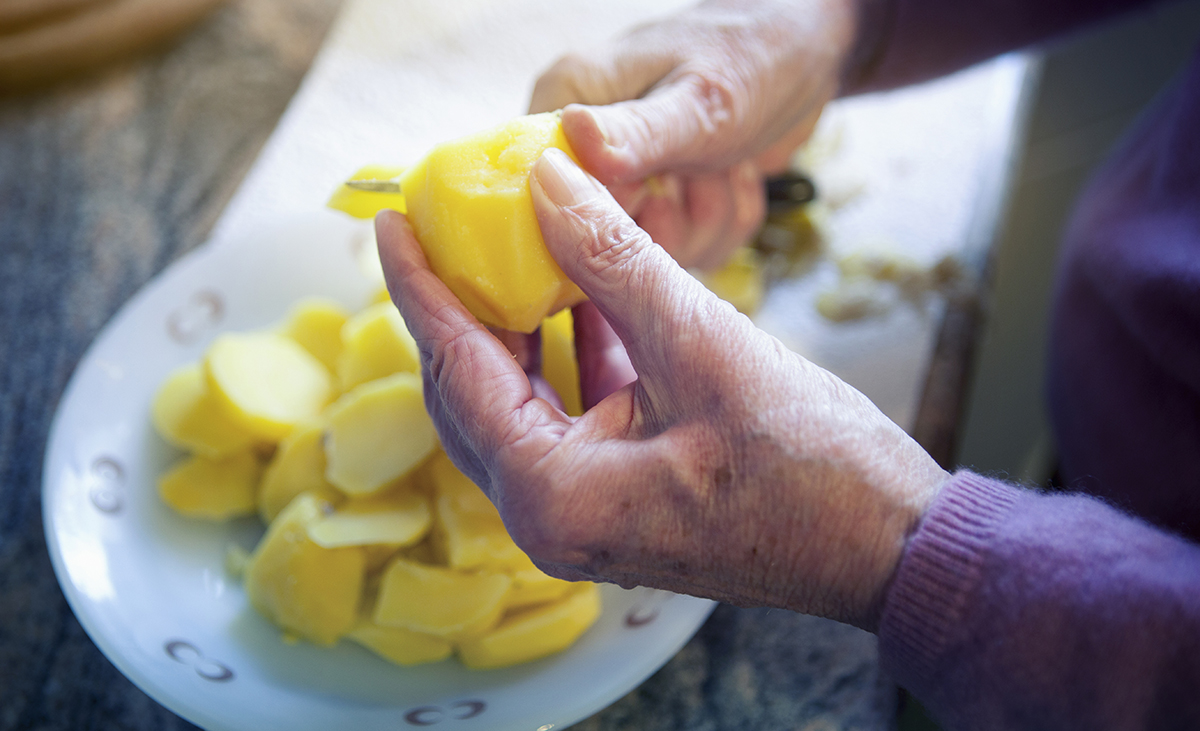Ask the Expert: Should I Eat Differently As I Age?
Welcome to our Ask the Expert series, in which our panel of health experts answers your wellness questions. Here, registered dietitian Matt Priven tackles nutrition for older adults. Got a question of your own? Email jducharme@bostonmagazine.com.

Photo via istock.com/wernerimages
Question:
I’m getting older. How should I eat to ensure good nutrition? —M.C., Boston
Answer:
The foundations of good nutrition stay fairly consistent throughout our lives—but some nutrients and foods are especially important for older adults, Priven says. They include:
- Vitamin D and Calcium: Bone-health-boosting calcium is particularly important for older adults, “who need to maintain their bone mineral density,” Priven explains. But the body can’t adequately absorb calcium without vitamin D, so it’s important to load up on both. Calcium is found in dairy products and dark, leafy greens, while fish and egg yolks contain vitamin D.
- Vitamin B12: “Vitamin B12 is needed to produce healthy blood cells and for proper neurological function,” Priven explains. “In order to absorb the vitamin B12 in our diet, you need adequate stomach acid.” Up to 30 percent of adults over 50, however, see drops in stomach acid production. Prevent a nutrient deficiency by choosing plenty of foods rich in B12, such as eggs, dairy products, meat, and fish, Priven says.
- Protein: “As we enter old age, we tend to lose muscle mass more readily, and this increases the likelihood of bone loss as well as injury and illness,” Priven says. “To maintain your muscle mass, it’s important that you’re getting enough protein in your diet.” Most older adults should shoot for roughly one gram of protein per kilogram of body weight each day, he says. Look to foods including lean meats, fish, dairy, eggs, legumes, nuts and nut butters, and quinoa.
- Fluids: Priven says dehydration is quite common among elderly individuals, many of whom experience decreased thirst. While fluid needs are highly individual, the old eight cups a day standard is a good benchmark. And plain old H2O isn’t your only option—Priven notes that milk, low-sodium soups, and water-rich fruits and vegetables also hydrate the body.
Specific nutrients aside, Priven says many people see a drop in appetite as they age. “This can lead to malnutrition,” he says, “which has its own negative health effects” including damage to muscles and bones, a depressed immune system, and a higher risk of infection. If low appetite makes regular meals unappealing, try smoothies, supplemental drinks, or multiple hearty snacks, Priven suggests.
Multivitamins and supplements may also be helpful for those low in a specific nutrient. “You should try to do everything you can to get your nutrients from food first,” Priven explains. “That being said, if you do your best to get enough calcium [for example] throughout the day but still you’re only meeting half of the daily amount, then filling in that gap with supplements should be recommended.” Since supplements are not well regulated, consult your doctor or a dietitian about the dosage and type right for you.

About the Expert: Matt Priven is a registered dietitian nutritionist and the founder of Oceanside Nutrition. As an RDN, Matt is an expert in the areas of food and nutrition. He holds a M.S. in nutrition and health promotion. Passionate about research, he is a published author in multiple scientific journals, including the Journal of the Academy of Nutrition and Dietetics. Having trained and worked at Brigham and Women’s Hospital, Matt helped thousands of individuals before opening a private practice. At Oceanside Nutrition, Matt provides individual nutrition counseling in Boston and Newburyport for a variety of health concerns.
Got a question for our experts? Email jducharme@bostonmagazine.com.


